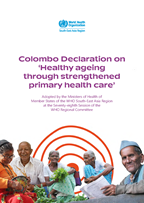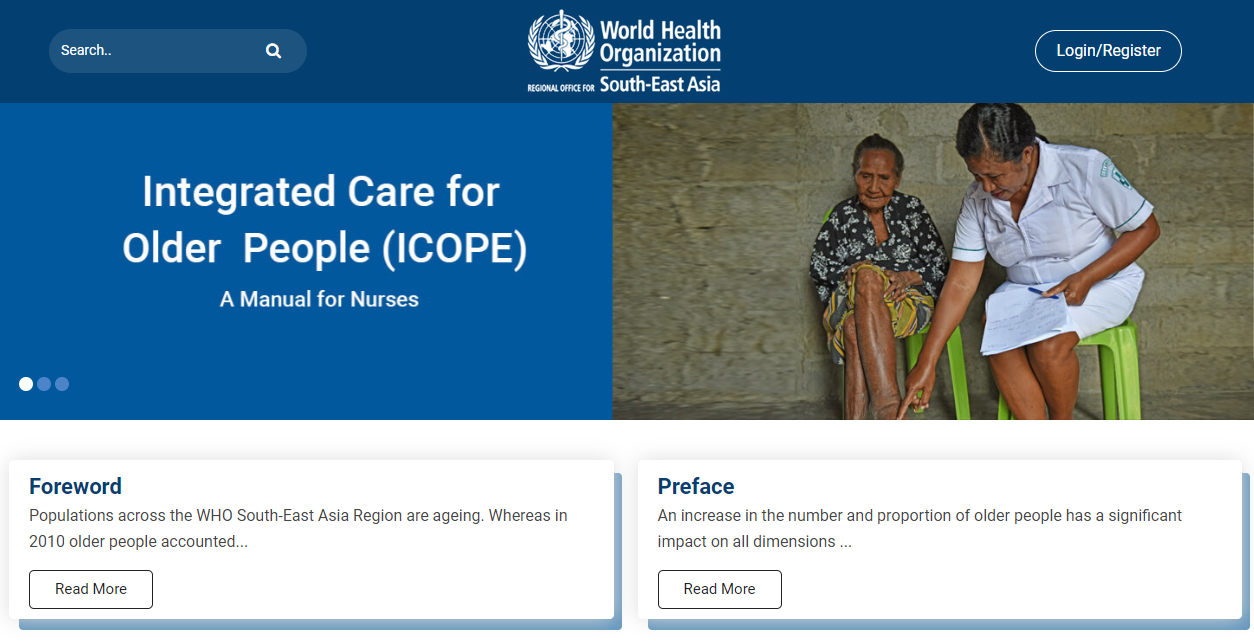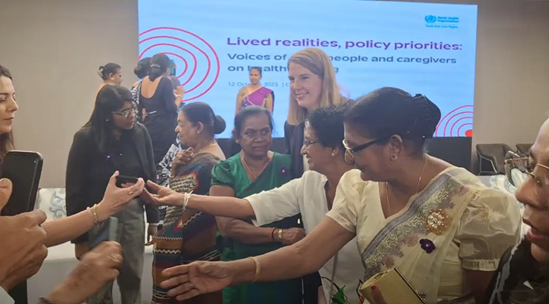Ageing and health
Population ageing is advancing rapidly across the WHO South-East Asia Region, where the proportion of older people in the age group of 60 years and above is expected to increase from 12.2% in 2024 to 22.9 % by 2050. Although longevity is improving, it is not always accompanied by good health; older adults may spend several years in poor health, often requiring care.
These demographic shifts highlight the need to develop “future-ready” health and social systems, reduce inequities, especially for vulnerable groups such as older women, and achieve the United Nations Decade of Healthy Ageing’s vision to create a world where all can live long, healthy lives.
Without action, sustainable development and the goals of the 2030 Agenda, including the 1 billion target for Universal Health Coverage (UHC) that includes older people, will not be realized to their full potential.
Ageing presents both challenges and opportunities. It will increase demand for primary health care and long-term care, require a larger and better trained workforce, intensify the need for physical and social environments to be made more age-friendly, and call for everyone in every sector to combat ageism. Yet, these investments can enable the many contributions of older people – whether it be within their family, to their local community (e.g., as volunteers or within the formal or informal workforce) or to society more broadly.
Societies that adapt to this changing demographic and invest in healthy ageing can enable individuals to live both longer and healthier lives and for societies to reap the dividends.
- change how we think, feel and act towards age and ageing;
- ensure that communities foster the abilities of older people;
- deliver person-centred integrated care and primary health services responsive to older people; and
- provide access to long-term care for older people who need it.
The Regional Strategy is intended to guide and support Member States and national and/or regional multisectoral partners, e.g. civil society organizations (CSOs) and community-based organizations (CBOs), in strengthening their respective national programmes/strategies and implementation plans to foster healthy ageing and meet commitments that are meaningful for older people by 2030. The Regional Strategy supersedes the earlier regional frameworks on healthy ageing and aligns with the Regional Roadmap for Results and Resilience (“the roadmap”).







